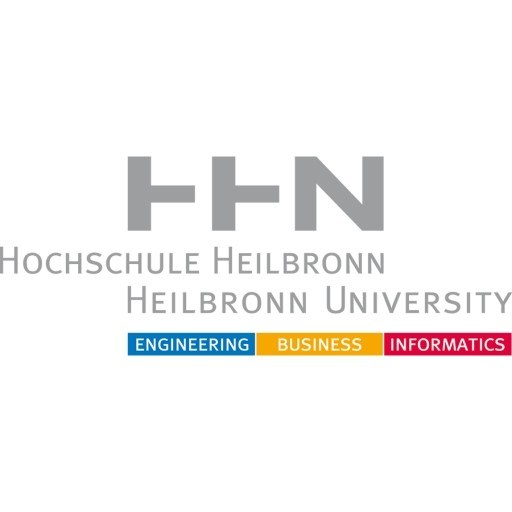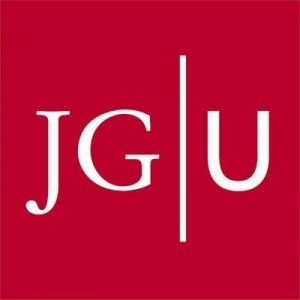Photos of university / #hs.furtwangen
International Business Management (IBM) at Furtwangen University offers a comprehensive and practical education designed to equip students with the essential skills and knowledge required to succeed in the global business environment. This interdisciplinary program combines core business disciplines such as marketing, finance, management, and economics with a strong emphasis on international aspects, cross-cultural understanding, and language proficiency. Students will gain insights into global market strategies, international trade policies, and intercultural communication, preparing them for leadership roles in multinational corporations or entrepreneurial ventures across borders. The curriculum features a blend of theoretical foundations and practical applications, including case studies, project work, internships, and collaboration with industry partners. Students have the opportunity to participate in international exchange programs, gaining firsthand experience in diverse business cultures and practices. The program is taught by experienced faculty members who hold extensive expertise in international business, and many courses are delivered in English to enhance language skills and global readiness. Graduates of the International Business Management program are well-prepared for careers in areas such as international marketing, global supply chain management, financial analysis, consulting, and corporate strategy. They will have developed key competencies including intercultural communication, strategic thinking, problem-solving, and digital literacy, which are highly valued in today’s interconnected world. The program emphasizes sustainability, responsible management, and innovative thinking, enabling students to contribute positively to global economic development. Upon completion, graduates will be awarded a Bachelor of Science (BSc) degree, opening doors to advanced studies or immediate employment in international business environments. The diverse and dynamic learning environment at Furtwangen University ensures that students are prepared to face global business challenges with confidence, creativity, and ethical responsibility.
Educational organisation
Course modules:- Organisations & Markets: The module integrates elements from the fields of organisation, competition, and industrial economics. It helps students to understand the internal and external challenges of firms to allocate resources. The first part of the module, Managing Organisations in Complex Environments, is dedicated to different contemporary applications of organisation theory. This is followed by the exploration of firms' organisational boundaries, collaboration patterns, and leadership challenges in complex organisational environments. The second part of the module, Managerial Economics, addresses mainly microeconomic aspects and the competitive framework within which firms operate, and which have an influence on strategic decision-making.
- Strategic People & Innovation Management: In the first part of this module, students will understand how to deal systematically and strategically with current challenges in Human Resource Management (HRM) such as talent shortage, organisational transformation, globalisation and diversity. Based on selected topics, students will become familiar with the latest concepts and related scientific insights. As such, students will gain a differentiated perspective on HRM-related solutions. Some of the selected topics could include, for example, social media, employer branding, and talent management. The second part of this module looks at Innovation Management and Entrepreneurship. Building on the foundations laid out in the first part of this module, the second part will integrate HRM aspects into the wider view of innovation management as a cross-functional strategic activity in firms. Based on a holistic understanding of innovation, including technological and non-technological aspects, different strategic options for innovation will be explored. Furthermore, the organisational limitations and enabling factors for successful innovation as well as issues related to intellectual property rights, external collaboration, and entrepreneurial design will be addressed.
- Sustainability: The module Sustainability sets out a wider framework and deals with firms´ and organisations' relation to and role within society. Today, the responsibilities of managers are becoming increasingly diverse. Stakeholders as well as the triangle of economic, social, and ecological sustainability define the scope of managerial responsibility. These responsibilities have expanded to tasks such as installing a system of corporate governance, compliance and risk management, liability management, or conflict management. The pressing challenges of economic, social, and ecological sustainability require a multidisciplinary and integrative perspective as well as a critical approach towards existing business practices. This module will address these complex issues and explore potential solutions for responsible and sustainable management.
- Research Seminar on Interdisciplinary Collaboration: This seminar exposes students to the complexity of the multicultural and interdisciplinary environment we face today. The volatile, uncertain, complex, and ambiguous setting for international work necessitates a global mindset and global competences, which enable students to leverage and benefit from the diversity. Beginning with the topics discussed in the first study semester within the contexts of Philosophy of Science and Research Design, the more specific challenges of coordinating various cognitive styles, professional disciplines, and other cultural preferences relating to collaborative working styles will be explored. The psychology of group dynamics in general and the specificities of global face-to-face and virtual teamwork will be examined.
Internships
NoneForms of assessment
E.g., oral exam, written exam, presentations, written work, term papersCourse objectives
- Acquire advanced qualitative and quantitative methodological skills for problem solving
- Explore the responsibilities of management in corporate governance, compliance and risk management
- Develop an understanding of economic, social and ecological sustainability and the implications for management
- Build a broad knowledge of industry and market dynamics
- Develop a strategic mindset and competences for working with diversity
- Foster an awareness of the historical, cultural and philosophical roots of knowledge
- Encourage critical awareness and self-reflection
- Become familiar with the process of scientific research, data analysis and academic writing
Graduates of this programme will have acquired advanced problem-solving skills that are needed for leadership positions both in industry and in the public sector. The broad scope, the strong methodological foundation and the international focus of this programme prepare graduates for a wide range of professional possibilities. Some examples are:
- Leadership positions in both multinational companies and SMEs - particularly those active in international markets
- Positions in all types of management consultancies
- Strategic positions in industry associations
- Becoming an entrepreneur
- Starting a PhD
Language requirements
Proficiency in English in written and spoken form as indicated by TOEFL, IELTS, or the Cambridge Certificate of proficiency in EnglishAcademic requirements
Students will need an above-average undergraduate degree in a business-related field. They must have an excellent command of English, proven by TOEFL, IELTS, or the Cambridge Certificate of proficiency in English.Chinese and Vietnamese applicants will need to provide an APS certificate.
Students must also send a digital copy of their Bachelor's thesis.
Enrolment fees
120 EUR per semester (modified each semester) - administration and social feeCosts of living
Students will need approx. 670 EUR per month to cover personal expenses.Mandatory health insurance in Germany will cost students approx. 90 EUR per month.
Arrival support
The Business School's own International Student Support Coordinator is available for all international students throughout their studies at Furtwangen University. We aim to help our students with all questions and problems they may face: from accommodation to residence permits, assistance with language-related problems, etc.Services and support for international students
The HFU Business School's International Student Support, together with the International Center, organises an orientation programme for international students in the two weeks prior to the beginning of the semester.Most of the administrative issues which a student new to Germany faces will be covered in this programme.










